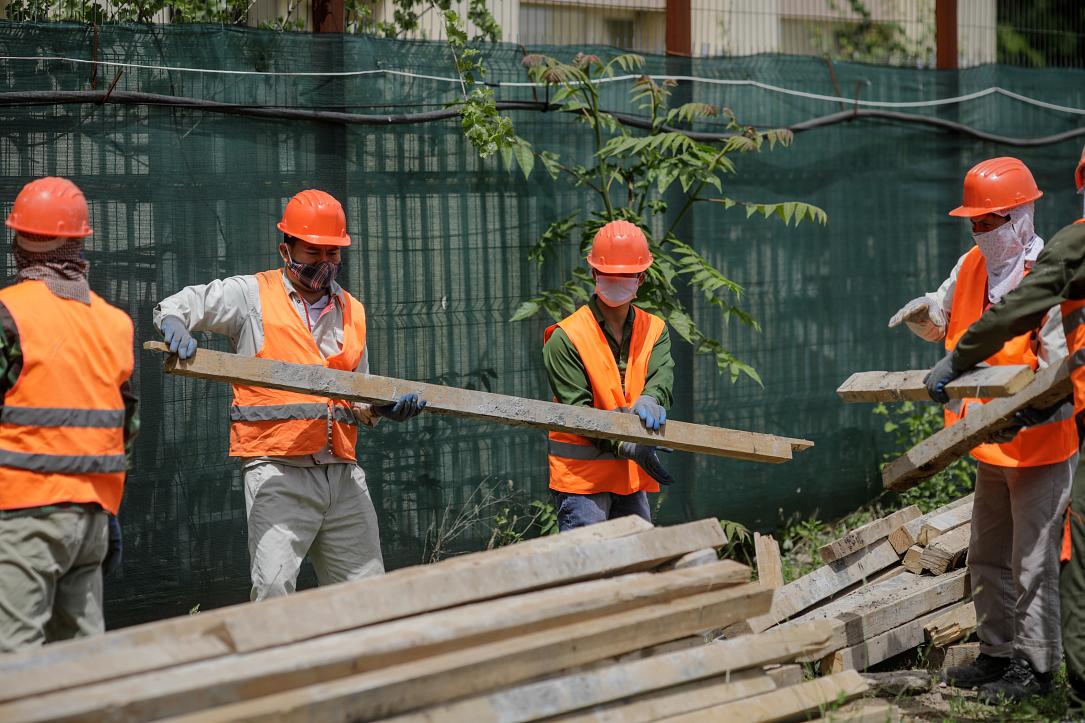Two-thirds of Romanians see immigrants as helping the economy, survey shows



A recent poll by INSCOP Research shows that two-thirds of Romanians see immigrants more as an opportunity for Romania because they help the economy by taking jobs not done by locals.
Young people, those with higher and medium education levels, as well as residents of Bucharest, are more favorable toward immigrants than the average population.
People with primary education and those living in villages are the most enthusiastic supporters of the state's support for the return of Romanians who have gone abroad to work.
“Over two-thirds of respondents have a tolerant attitude towards immigrants who come to work in our country, as there are available jobs that are not taken by Romanians, but at the same time they want the country to financially encourage the return of our fellow citizens who have gone abroad for work,” said INSCOP Research director Remus Ștefureac, in a press release.
Only 25.1% of Romanians believe that immigrants coming to Romania to find work represent more of a threat because they take the jobs of Romanians who are forced to go abroad.
On the other side, 78.5% of people between the ages of 18 and 29 believe that immigrants are more of an opportunity for Romania because they help the economy by taking jobs not occupied by Romanians. 67% of those aged 30 to 44, 61.6% of those aged 45 to 59, and 69.6% of those aged over 60 share this opinion.
This view is shared by 47.3% of people with primary education, 74.3% of those with medium education, and 77.8% of those with higher education, as well as 80.6% of residents in Bucharest, 72.3% of those in large urban areas, 75.6% of those in small urban areas, and 60.1% of those in rural areas.
Regarding the provision of financial incentives for Romanians in the diaspora to return to the country, 67.4% of Romanians agree, while 31.5% are against this idea. Among those who agree are 87.7% of people with primary education, 67.3% of those with medium education, and 44.0% of those with higher education, as well as 59.5% of residents in Bucharest, 51.9% of those in large urban areas, 61.3% of those in small urban areas, and 79.7% of those in rural areas.
The same survey probed the views held by Romanians in relation to the idea of freedom.
“For more than half of Romanians, freedom means either that their own freedom does not affect the freedom of others or that they have as many rights and freedoms as possible (freedom of expression, voting, association, respect for privacy),” Remus Ștefureac said.
Some differences among age groups were observed. Young people aged 18-29 see freedom in the most diverse and extended form, whereas people over 60 value more than other categories the idea of living in a society where they are not afraid of oppression, likely an effect of memories from the communist era.
Other differences were noted among supporters of the main Romanian parties. Social Democratic voters value the idea that their own freedom should not affect that of others. The voters of PNL enjoy having as many rights and freedoms as possible, while USR voters place greater emphasis on the ability to make decisions without any external constraints.
The opinion poll was conducted by INSCOP Research, a corporate member of the global Esomar network, commissioned by the Institute for Freedom and Democracy.
(Photo source: Cateyeperspective | Dreamstime.com)